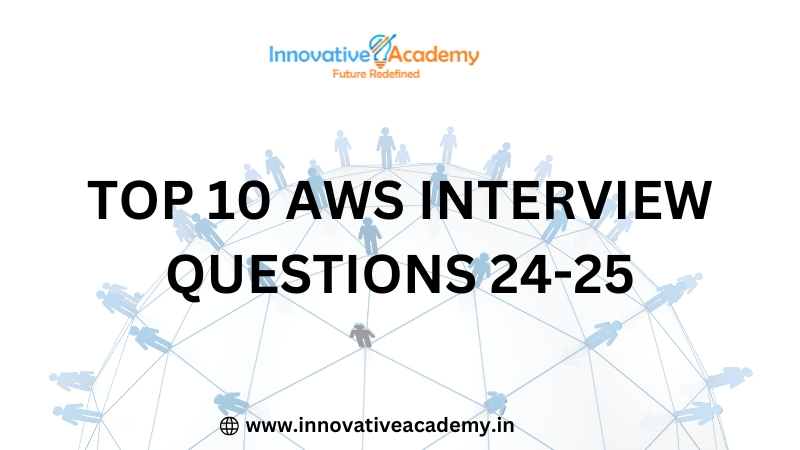TOP 10 AWS INTERVIEW QUESTIONS 24 – 25
Table of Content
Introduction
Securing a position in IT and other fields requires answering a set of questions asked by the respective industry experts. In 2024-25, the following questions are observed to be asked most frequently in an AWS Engineer Interview.
IaaS (Infrastructure as a Service)
- Differentiate between IaaS, PaaS, and SaaS in AWS? Can you provide examples of AWS services that fit into these categories?
This question assesses your understanding of cloud service models, where you might explain how EC2 fits into IaaS, Elastic Beanstalk into PaaS, and Amazon WorkMail or S3 into SaaS. - How do you architect a high-availability solution on AWS using EC2 instances? What are the key components?
Focus on components like Auto Scaling, Elastic Load Balancing, multiple Availability Zones (AZs), and how to ensure redundancy and failover.
- How would you secure your EC2 instances and VPC? What are some best practices for setting up security in an IaaS environment?
Here, you would talk about Security Groups, Network ACLs, IAM roles, key pairs, and the principle of least privilege.
AWS Storage
- How does Amazon S3 ensure the durability and availability of stored data?
You would explain S3’s design for 99.999999999% (11 9’s) durability, its storage of data across multiple Availability Zones, and possibly its use of features like versioning and lifecycle policies.
- What are the different S3 storage classes, and how do you determine which one to use for a given workload?
Discuss storage classes like Standard, Intelligent-Tiering, Glacier, and One Zone-IA, explaining when each is appropriate based on cost, retrieval speed, and durability.
- What are the differences between Amazon EBS, EFS, and S3, and how do you choose the right storage option for an application?
Contrast EBS for block-level storage, EFS for file-level storage, and S3 for object storage. Use cases might include choosing EBS for high-performance storage for databases, EFS for scalable shared file storage, and S3 for data lakes or backups. - How does Amazon S3 handle security, and what are some options for securing data in S3?
Talk about S3 Bucket Policies, IAM policies, Encryption at rest (SSE-S3, SSE-KMS), encryption in transit, and Access Control Lists (ACLs).
Route 53 (DNS Service)
- What are the main routing policies available in Route 53, and when would you use each of them? This question assesses your knowledge of Simple Routing, Weighted Routing, Latency-based Routing, Geo-location routing, and Failover routing, including examples of when each is most appropriate.
- How do you implement failover using Route 53 for a multi-region web application?
Explain using health checks with failover routing to direct traffic to a secondary region when the primary region fails.
- Can you explain how Route 53 integrates with other AWS services to provide a scalable and resilient solution?
Discuss integrations with services like CloudFront, ELB (Elastic Load Balancer), and S3 for static websites, and how Route 53 ensures DNS resolution across these services while maintaining high availability.
Conclusion
AWS or Amazon Web Service Interview is ranked 3.47/5. It’s a significant difficulty. The above questions are designed to make preparation for the AWS Engineer interview easier.
Contact for Course Details – 8447712333





No Comment